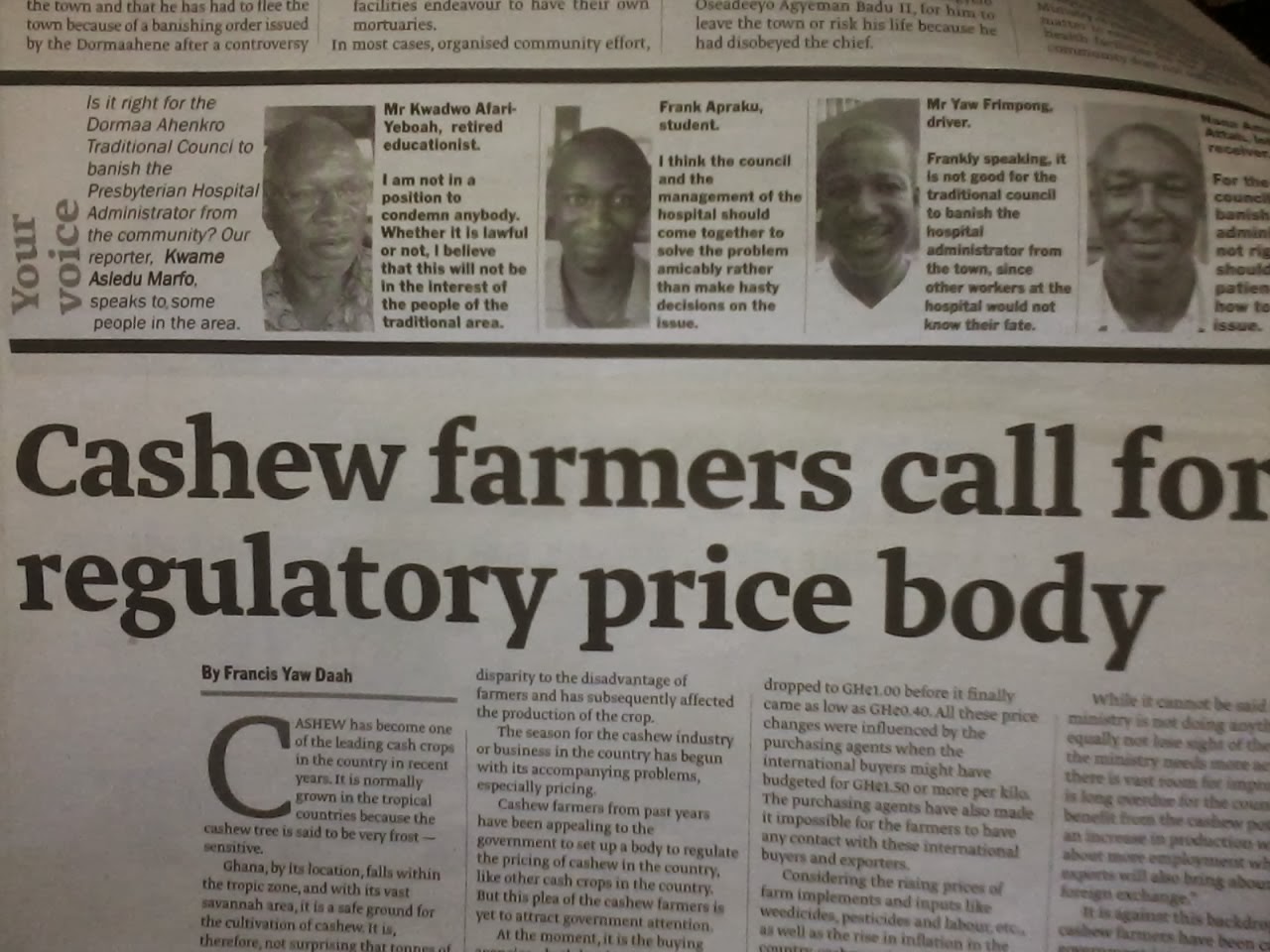Why Government Should Support Cashew Processing-Raymond Taylor
The government has repeatedly expressed its willingness and commitment to foster extended processing and value addition in the cashew value chain. Detailed below are a number of programs and regulations through which this can be achieved.
The business environment for producing, processing and trading in raw cashew nuts (RCN) is still marked by the general constraints that businesses face in Ghana including electricity and water shortages, availability and access to finance amongst others. These factors seem to weigh particularly heavily on the processing segment of the value chain. These challenges notwithstanding cashew processing still remain a profitable venture if adequately supported.
Processing 40,000MT of RCN in Ghana creates 8,000 jobs in rural areas with a combined monthly income of $685,000 paid to predominantly women (80 – 90%).
Exports of 40,000MT of raw cashew nuts at $900/MT will result in revenue of $36,000,000. However, processing 40,000MT of RCN yields approximately 9,000MT of kernel which at a price of $7,000/MT results in import revenues of $63,000,000 a difference of $27,000,000. Approximately $8.2 million will be paid as wages into the rural economy yearly.
Ghana is close to both the European and US markets and with the increasing requirement for traceability in the food supply chain most buyers are reaching out to West Africa to source cashew kernels directly. The distance travelled is shorter and the carbon foot print is much smaller.
New technologies for cashew processing from Vietnam have made it easier to process cashews. The time and effort required for training have reduced considerably and the most difficult stage of processing, ‘shelling’, has now been automated hence reducing the adverse effects of cashew nut shell liquid (CNSL) on workers hands.
Processing RCN becomes profitable because of economies of scale. At small volumes the cost structure limits profitability. Processing of nuts requires a huge capital investment. The capital is bound for almost a year otherwise there would be no continuous supply of raw materials for processing. Many processors are not able to cope with this challenge.
India remains one of the major sources of competition on the international market. However the Indian government pays a 5% subsidy to local processors for each job created.
The general processing cost in India is 40% higher than competitors using Vietnamese technology however this is compensated for by the strong market for broken cashew kernel which forms the backbone of the Indian cashew industry.
The Indian market is the world’s largest single market for cashew kernels. However India protects its domestic market. Prices for broken grades are higher than those prevailing on the world market. Indian processors are thus able to outbid processors in most markets for RCN. To level the playing field it would be prudent for the government to introduce an export levy on RCN. The revenue generated from this levy can be used to support farmers and promote the cashew sector.
This post has already been read 790 times!












Post Comment